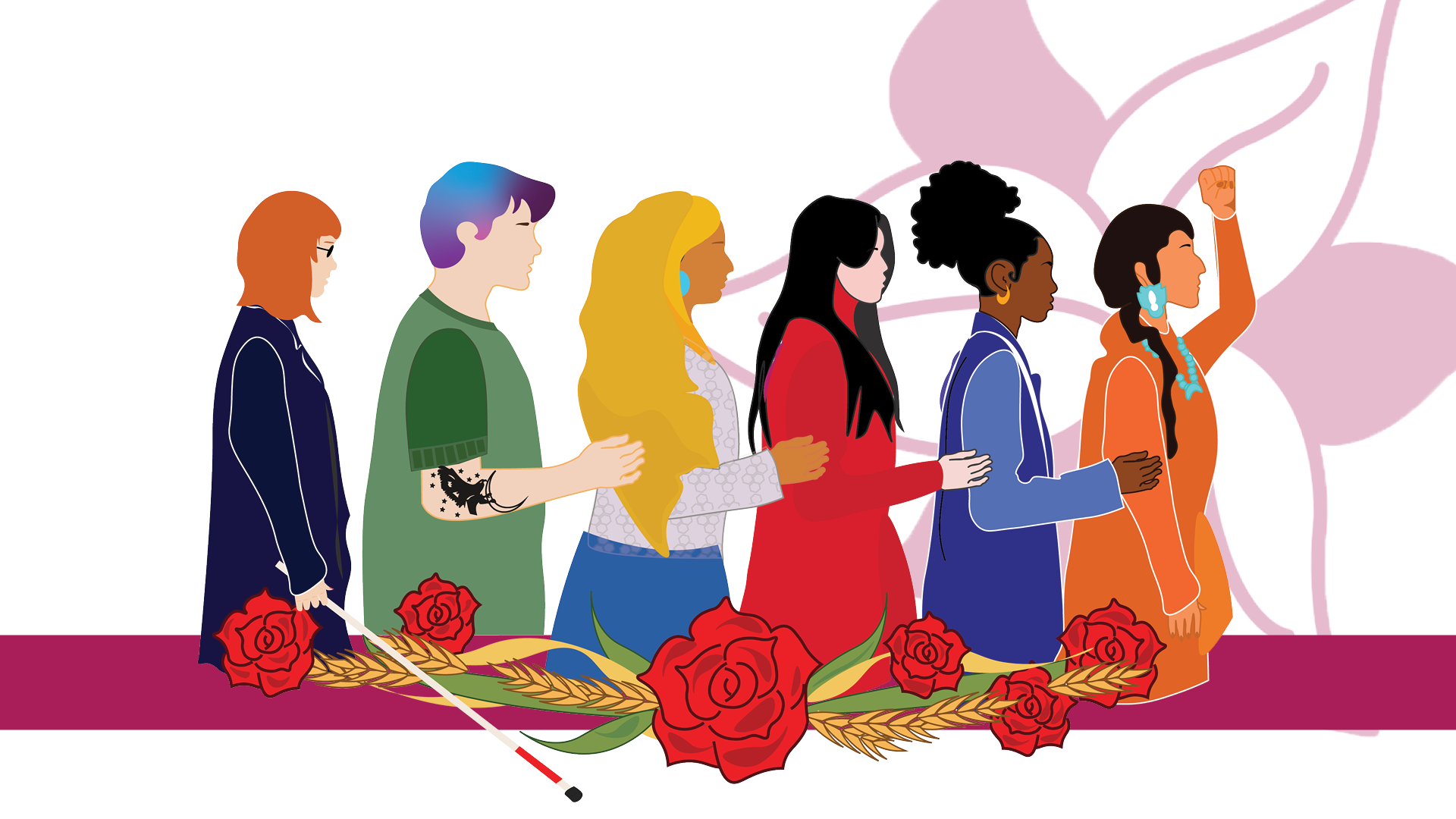International Women’s Day has its roots in the labour and socialist movements of the early 1900s. Women’s demands for better pay and conditions, voting rights, and recognition resonated with women workers across borders, classes, and around the world. In 1977, the United Nations proclaimed March 8 as International Women’s Day – a day CUPE Ontario is proud to mark in honour of the women in our union, whose members include Indigenous women, Black and Racialized women, women who are differently abled, young women, immigrant women, and women from the LGBTQ communities.
We can see the early struggles and successes of women workers reflected in the experiences of women in CUPE Ontario, a union in which women continue to build power and activism. Two-thirds of CUPE members are women and, in some sectors, women make up as much as 90 percent of the membership. Our union and our communities have benefited hugely from women’s leadership, and CUPE Ontario is pleased to sponsor initiatives like Women in Leadership Development (WILD), to ensure that the roles of Black, Racialized and Indigenous women in particular will continue to grow.
The work of the CUPE Ontario Women’s Committee is also vital and has taken as its special focus the defence of women who are facing harassment and violence in the workplace. Too many women still find themselves in situations of abusive power and gendered harassment, and this fact drives the Committee ’s plans for a women’s advocate program in CUPE Ontario. It is part of the Committee ’s mission to hold the powerful to account and to support women facing violence in any aspect of their lives.
After a global pandemic that disproportionately impacted women, we find ourselves in the midst of global economic upheaval that has seen the cost of living soar all over the world. Fueled by corporate greed, war and bad governments making bad laws, the economic crisis has made the role of CUPE Ontario even more important. As part of the fight for wages that keep pace with inflation, we also have also fought unjust legislation like Bill 124, the wage restraint legislation that predominantly targeted women, and disproportionately impacted racialized women. A coalition of unions and labour organizations brought the case to the courts, where it was struck down last year in a victory for all workers, and for women workers in particular.
We have long known that bargaining for better wages is a women’s issue. We saw this last fall, after unprecedented workplace actions by CUPE’s Ontario School Board Council of Unions and 55,000 CUPE Ontario school board members. They helped open an important conversation around wages, they fought successfully, and they won.
We will take this same determination to the fight against privatization of public services, and especially our cherished public health care system, staffed and supported by largely by a workforce of women. Once again, it will be an opportunity to remind ourselves of the power of women organizing and to link that power to the struggle for women’s rights globally.
In that regard, we send our solidarity to the women of Iran and their fight for justice under the banner of “Women, Life, Freedom”; and to women across the globe and close to home who are battling, or battling again, for reproductive freedom, freedom from violence, the right to education, equality and opportunity.
Because union women, like no others, know “the rising of the women means the rising of us all.”

